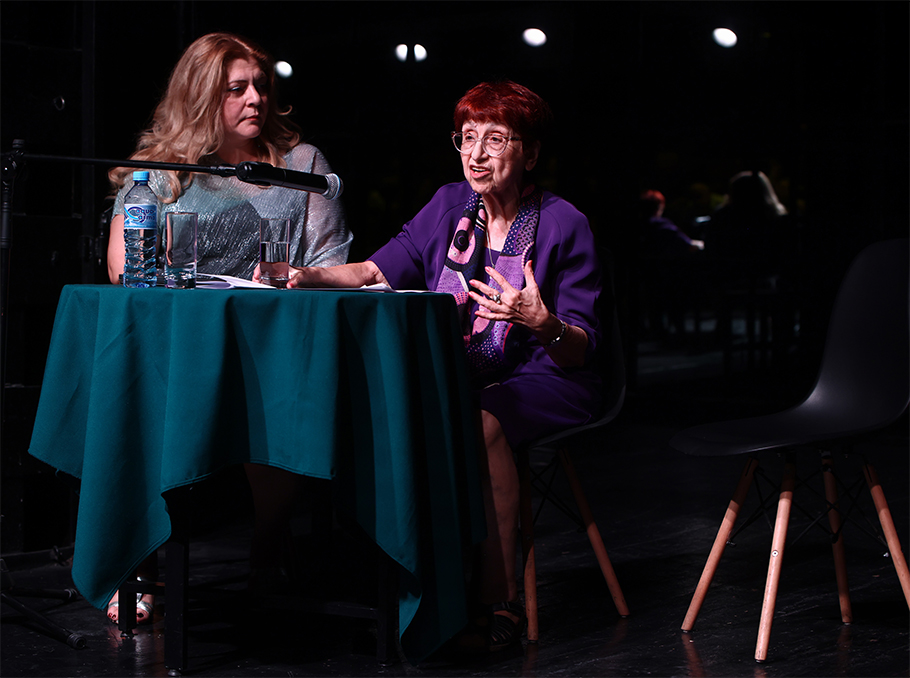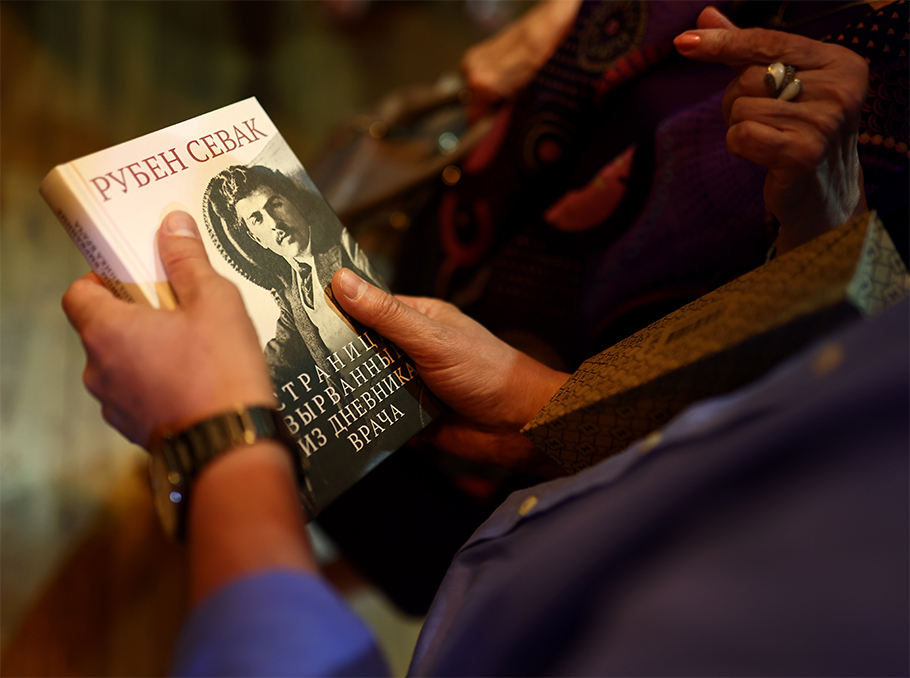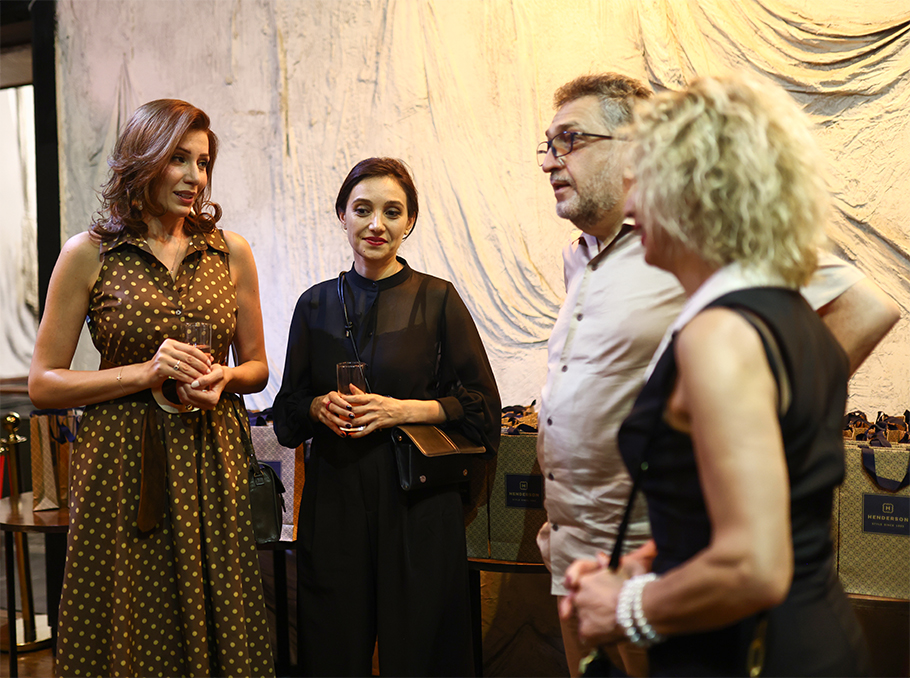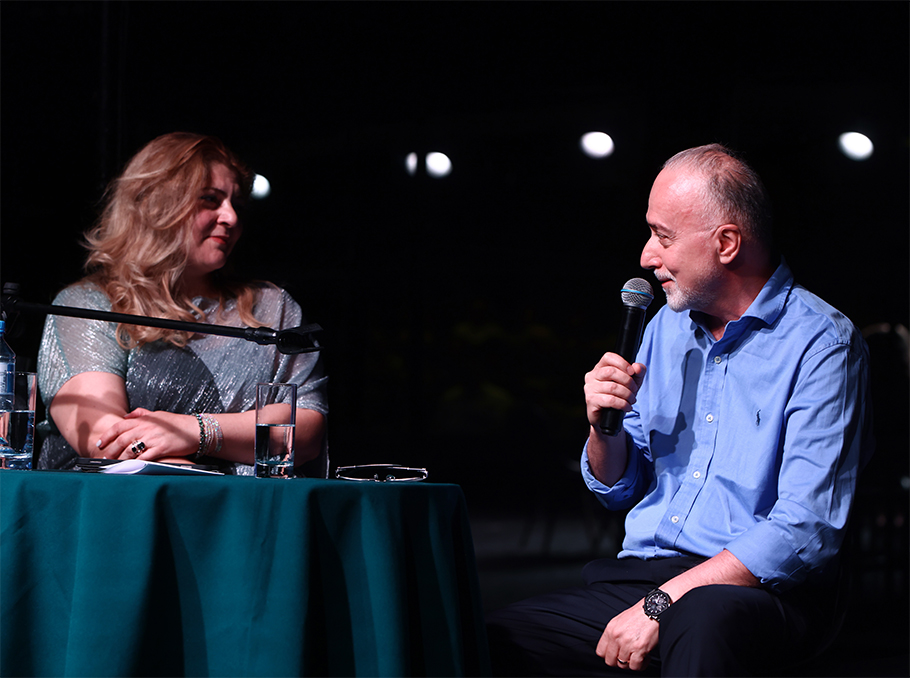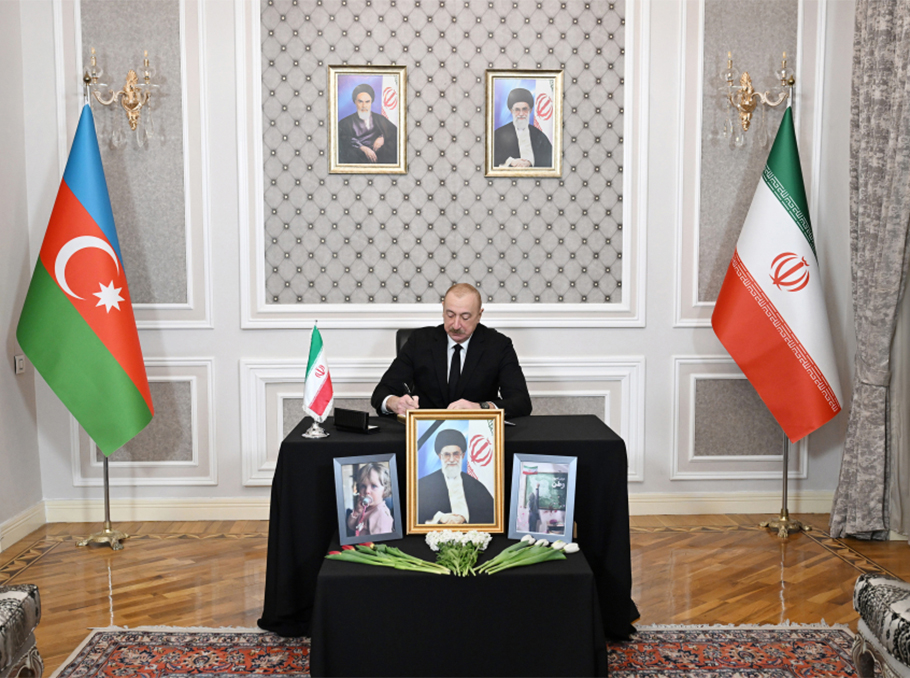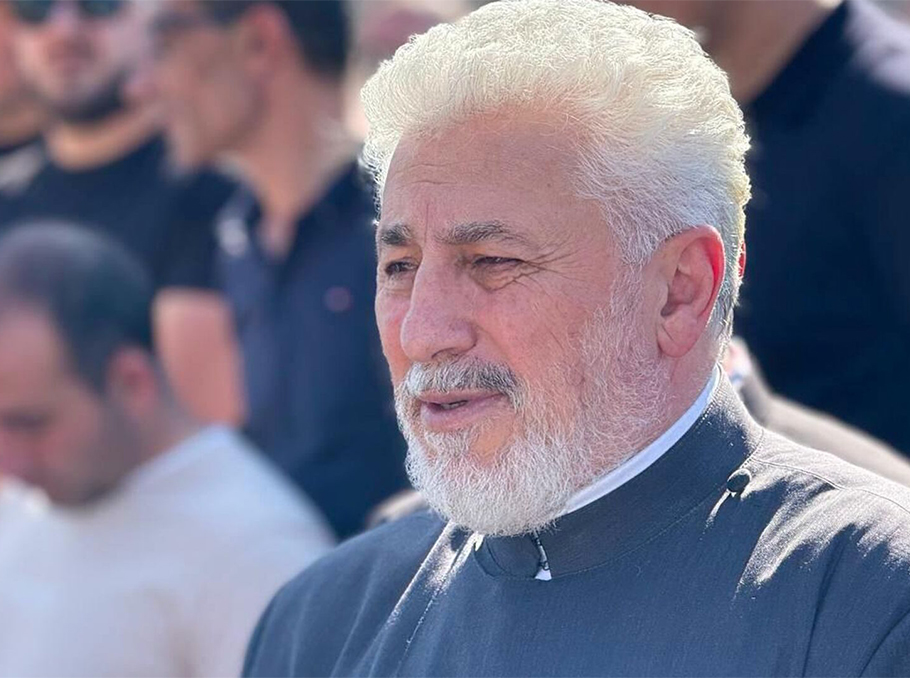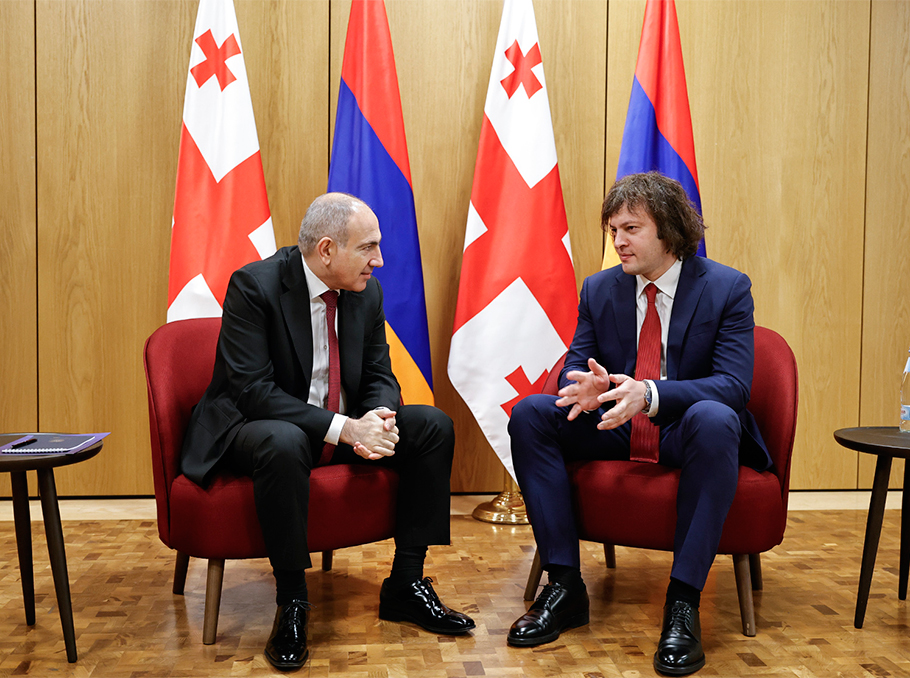On the eve of the 140th anniversary of Western Armenian poet, writer, and doctor Ruben Sevak, a collection of his medical short stories has been published in Russian. The author and translator of the book is Dr. Stepan Matevosyan, Professor of Medical Sciences, who not only translated the cycle “Pages Torn from a Doctor’s Diary” from Western Armenian into Russian but also enriched it with an essay about Ruben Sevak.
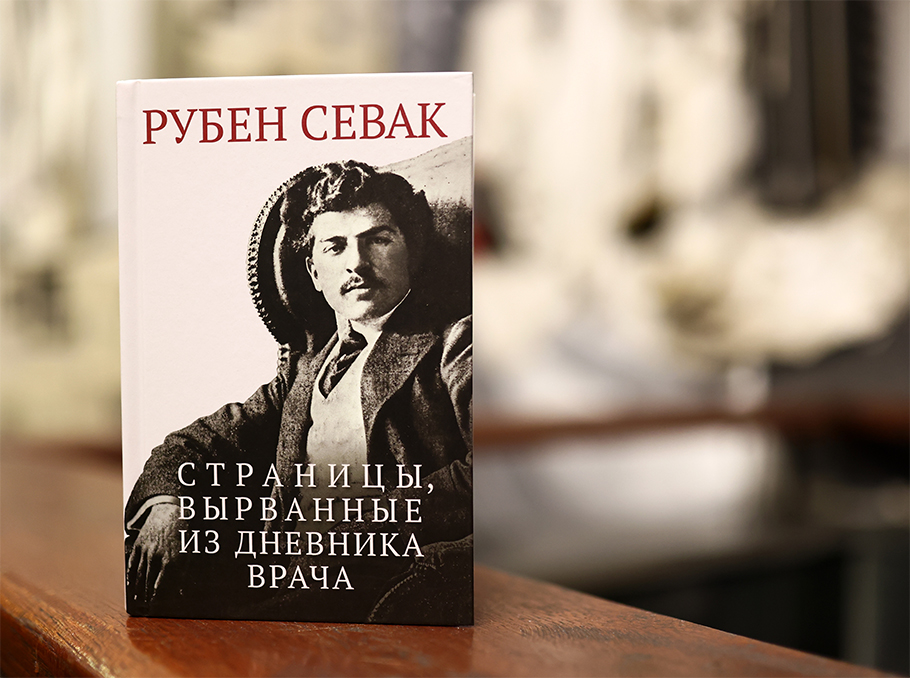
Photo: Mediamax
The creation of the book was supported by HENDERSON Fashion House, and on September 7, during the literary-theatrical evening dedicated to Sevak’s 140th anniversary, it was officially presented. The event was hosted by Sona Margaryan, Candidate of Philological Sciences and Associate Professor at the Russian and World Literature and Culture Department of the Russian-Armenian University.
“It is important to remember, preserve, and breathe new life into what we have”
Stepan Matevosyan, Doctor of Medical Sciences, Professor, book author and translator
“My first encounter with Ruben Sevak was back in my student years, at the Yerevan Drama Theater. The play was based on Perch Zeytuntsyan’s drama ‘The Great Silence’, with Daniel Varuzhan as the central figure. That was when I was impressed by the images of Varuzhan and Ruben Sevak, and my interest in Western Armenian literature began.
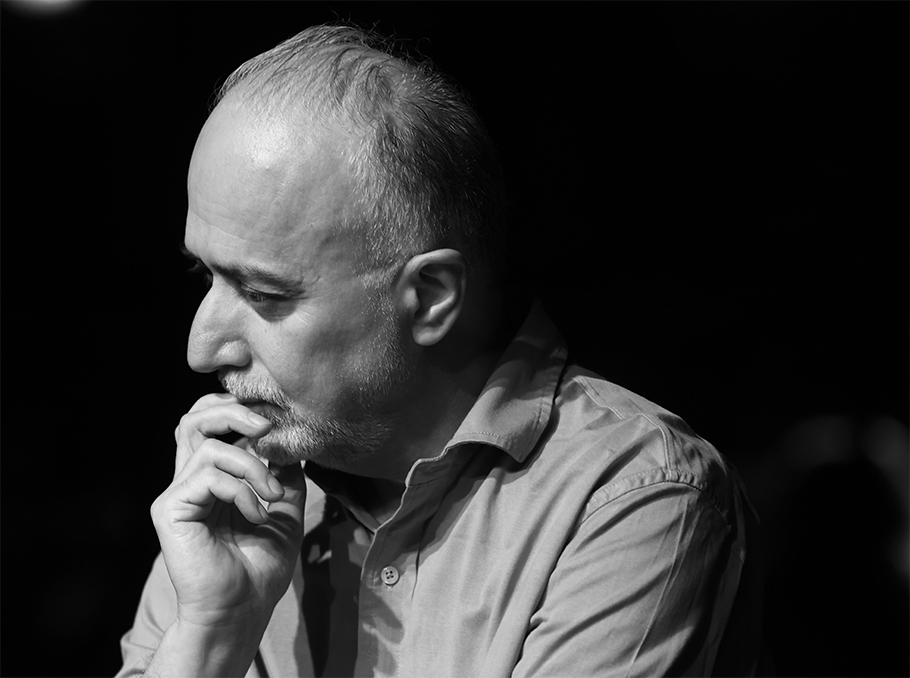 Stepan Matevosyan
Stepan MatevosyanPhoto: Mediamax
During my student years, I also read ‘Doctor Chekhov’ by Boris Shugin, a book about the medical activity of Anton Chekhov, who has always been and remains one of my favorite authors. Ruben Sevak, too, was a doctor, and I wanted to study his life and present him to readers from this perspective. At some point, I realized that the best writings about him were made by Sevak himself – in his cycle ‘Pages Torn from a Doctor’s Diary’. These stories reflect Sevak’s thoughts on life, health, medicine, education, and other issues that remain relevant to this day.
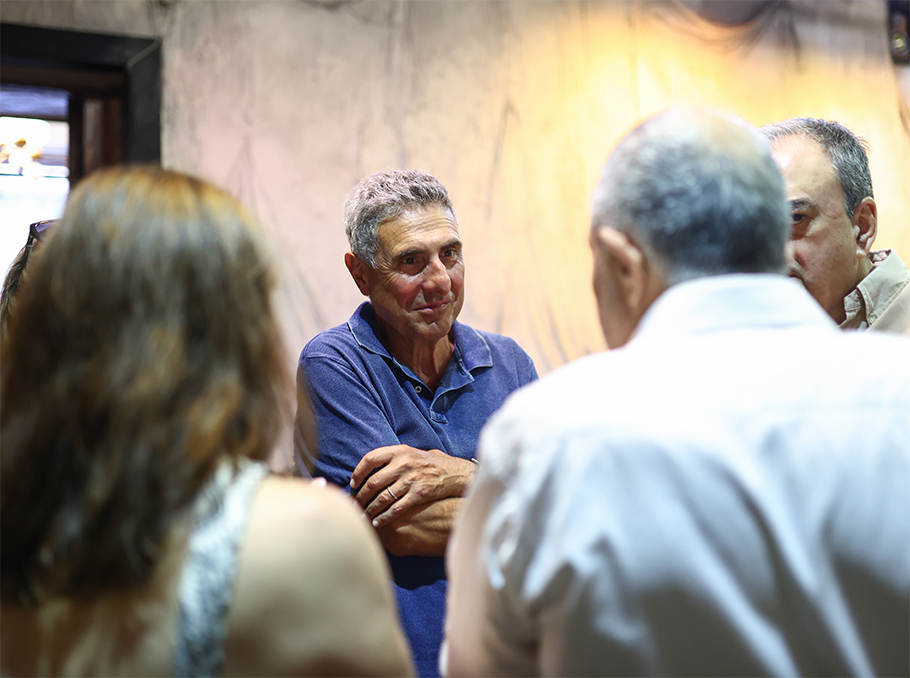
Photo: Mediamax
That’s when I decided to translate these stories into Russian, making them accessible to a wider audience. Being a doctor myself, I felt confident in taking on this task.
In addition to the 31 translated stories, the book also includes my essay on Ruben Sevak, based on long-term research in the archives of Switzerland, France, and Armenia.
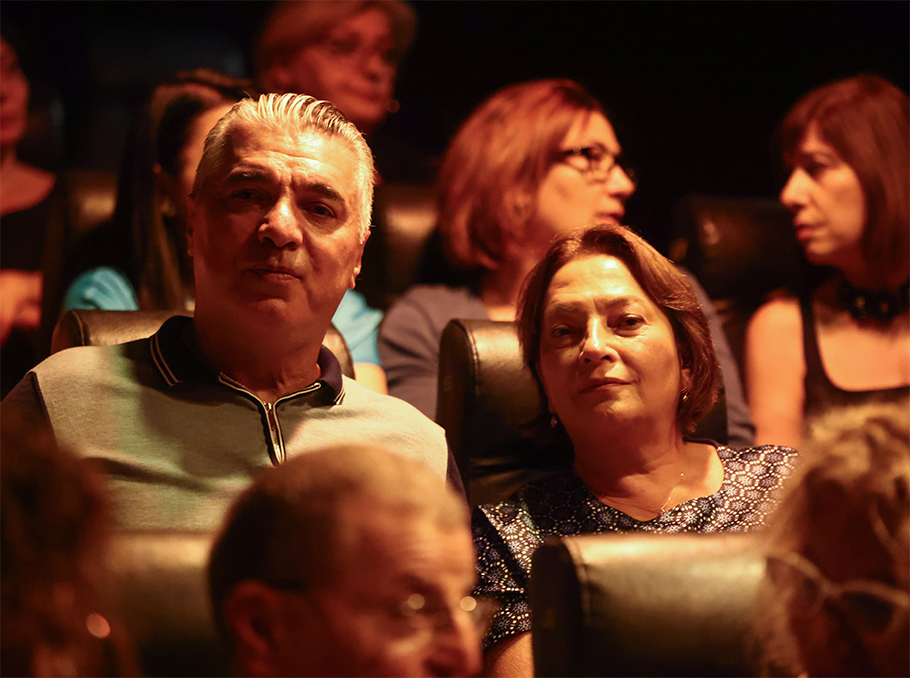
Photo: Mediamax
I believe the early 20th century was a flourishing period for Armenian literature, medicine, and many other fields—with figures such as Siamanto, Daniel Varuzhan, Misak Metsarents, and others. The Armenian Genocide interrupted this era, but it is important to remember, preserve, and give new life to what we still have. As the motto of this evening says: ‘Let us live long.’”
“A word that heals more than medicine”
Magda Janpoladyan, Literary Critic, Doctor of Philology, Professor
“With this book, Stepan Matevosyan has revealed an entirely new aspect of Ruben Sevak’s heritage to the Russian-speaking audience. Until now, only Sevak’s poetry had been published in Russian.
In the book, Matevosyan notes that Sevak touches upon education, religion, and science in his short stories. Being a doctor himself, Sevak gave great importance to the healing power of words. He believed that the supportive and empathetic attitude of a physician plays a decisive role in overcoming illness.
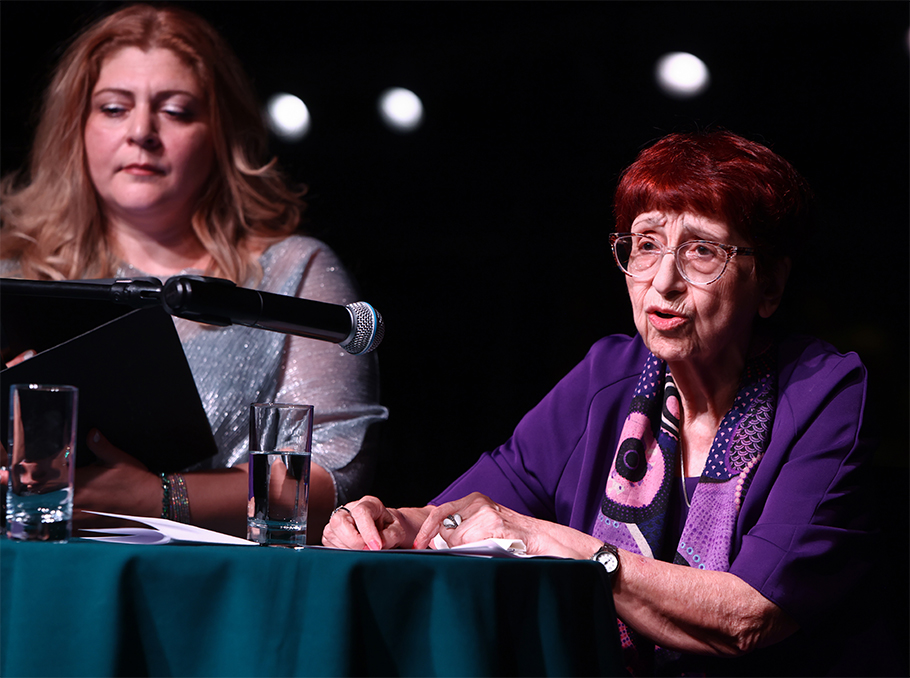 Sona Margaryan and Magda Janpoladyan
Sona Margaryan and Magda JanpoladyanPhoto: Mediamax
Matevosyan cites Sevak’s words, which I want to echo here: ‘The various prescribed medicines often contradict each other, but this is not what the patient truly needs. He does not need a sheet filled with prescriptions. What he needs is consolation, hope for life, and the restoration of willpower and spiritual strength.’
I think this idea is more relevant today than ever.”
“Striving for the future while recognizing our roots”
Ruben Harutyunyan, Founder and President of HENDERSON Fashion House
“At HENDERSON, we have a principle: for us, it is important not only the industry in which we operate but also the society in which we live.
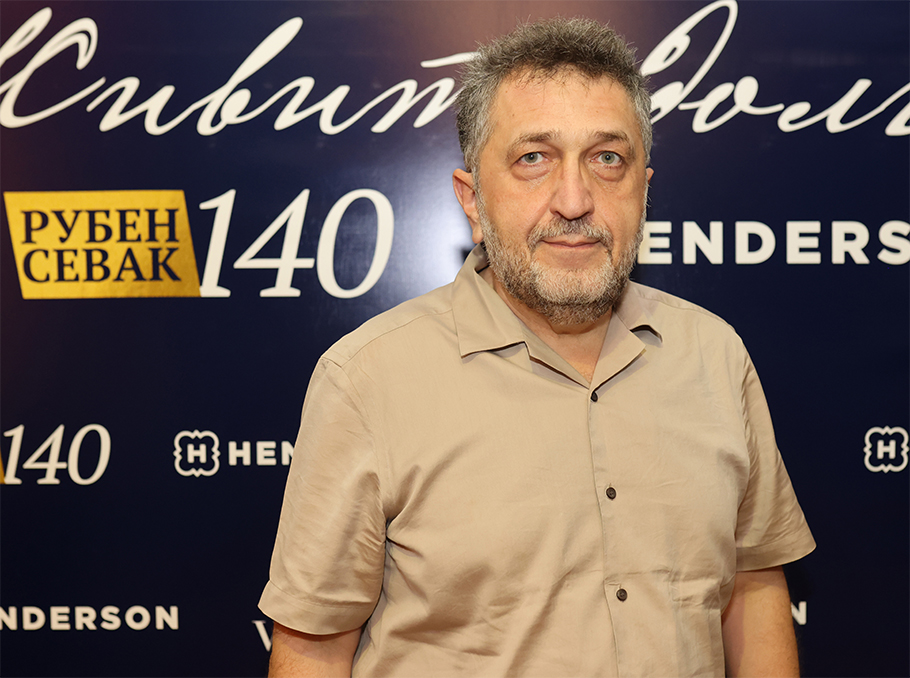 Ruben Harutyunyan
Ruben HarutyunyanPhoto: Mediamax
I am convinced that no state or nation can be strong without culture, art, and strong education. These are the pillars upon which a good future can be built.
For us, supporting the publication of Ruben Sevak’s works was essential, because unfortunately, he is not yet fully recognized by readers. Publishing this book in Russian will help make him better known.
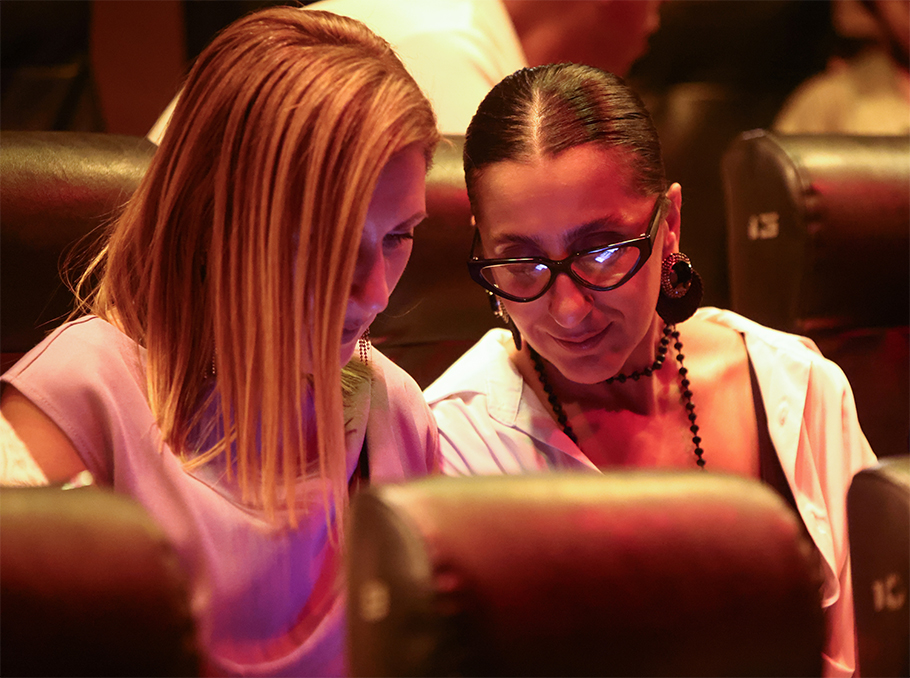
Photo: Mediamax
The world often learns about and recognizes Armenia through its culture. I believe culture can unite nations. For example, Arno Babajanyan and Aram Khachaturian are known worldwide. Yes, music is a universal language, but our literature can be the same. This is something we must know ourselves and also share with the world. Staying in the past is not right, but knowing our roots is necessary. One must strive for the future while being aware of the strong foundation we already have.”
Yana Shakhramanyan
Photos by Emin Aristakesyan









